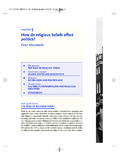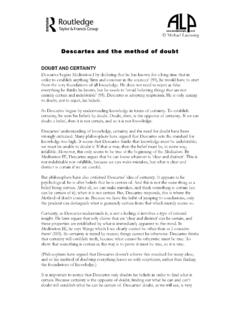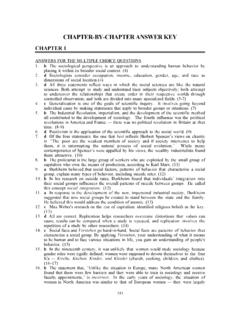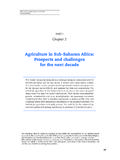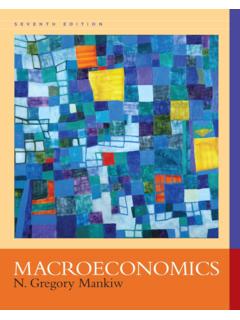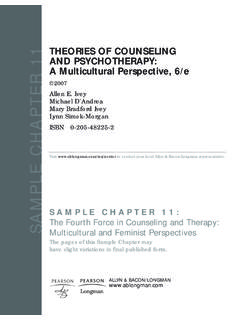Transcription of The British constitution, law reform and the …
1 The British constitution , law reform and theparliamentary legislativeprocessThis topic enables you: To appreciate the role of Parliament as the dominant law-making powerin the British constitution . To identify the influences on Parliament from law reform bodies, pressuregroups and campaigners. To understand the law-making processes within Parliament. To identify the powers in the British constitution . To recognise that there are limits to the supremacy of Parliament in law-making. To take account of the importance of European Community (EC) lawand its impact on the English legal system (to be read in conjunctionwith Chapter 5). To appreciate the far-reaching significance of some parliamentary law,such as the Human Rights Act of this chapter will concern itself with the way in which law is made byParliament.
2 Parliament creates written law referred to as legislationor statutelaw. Legislation or statutes passed by Parliament take the form of Acts of Parliament. You can see from the illustration below, and from Chapters 1 5,that there are four main sources of lawin the English legal system, of whichActs of Parliament are seen as the dominant source:7102ch01 25/6/08 5:19 pm Page 7In order to understand Parliament s law-making role, it is first necessary toconsider the place of Parliament within the British constitutionand todescribe its relationship with the other constitutional British constitution AND CONSTITUTIONAL THEORYWhat are people referring to when they talk about the constitution ? It is easier to imagine this if the constitution is declared in some form: for example, the United States has a written (or codified) constitution , whichsets out the limits of presidential government.
3 However, the position is com-plicated in Britain, because the constitution is a product of historical develop-ment and has never been reduced to one written code or document. Therefore, on a simple level, the British constitution is often described as an unwritten constitution . Although many of the sources of the constitution are written anddocumented, the British constitution remains , whether written or unwritten, a constitution will, in practice,define limits for Government and administration in a nation State. In short, aconstitution sets out the way in which a country will be aspects aregenerally defined in any constitution : The way in which power is balanced between the institutions (or governingbodies) of the nation State.
4 The limits to the powers exercised by such institutions, imposed to safeguard the rights and freedoms of individuals. The extent to which individual rights and freedoms within the nation Stateare three institutional powers in the British constitu-tion are, according to the separation of powers the-ory, the executive(Government: the administrationthat runs the country); the legislature(Parliament: theinstitution of law-making); and the judiciary(judges:the adjudicators in disputes).Of the three institutional powers, constitutionaltheorists have identified Parliamentas being thesupreme law-making body. Parliament can make, orunmake, any laws that it wants. This is the theory ofparliamentary additional theory is the rule of lawas developedby the 19th-century theorist Albert Venn Dicey.
5 Thisplaces an importance on law as a check on the arbitraryexercise of powerby Government; and stresses that noone individual is above the law , thus ensuring equalityof treatment for all before the summarises what is meant by the constitution and the main constitutional AS LAWT alking point :A written constitution for theUK?Stephen Hockman, QC, as Chairman of the Bar Council, wroteto The Timeson 8 February 2006 to suggest an importanttarget to aim for: by 2015, the 800th anniversary of the firstmajor constitutional landmark, Magna Carta, Britain shouldhave in place the enactment of a codifying measure whichwould contain in a single piece of legislation all the keyconstitutional principles and procedures which underpin thegovernance of the country.
6 David Cameron, as leader of theConservative Party, has proposed a British Bill of Rights inthe same spirit, though this was prompted at the time bydissatisfaction with the Human Rights Act 1998 rather thanby the desire to achieve a written, or codified, constitutionfor the UK. More recently, Prime Minister Gordon Brown haslet it be known via a Green Paper, titled The Governance ofBritain(2007) that the Government believes it is the righttime to open the debate on three linked proposals: a Britishstatement of values ; a British Bill of Rights to amend andsupport the Human Rights Act 1998 and the merits of awritten constitution . It is pleasing to note that theapproaching anniversary may have focused minds on Britain sunique constitutional heritage, whilst also stimulatingwelcome debate about future constitutional 25/6/08 5:19 pm Page 8 CHAPTER 1 The British constitution , law reform and the parliamentary legislative process9 Developing the subject :Focus on the separation of powers and therule of lawThe separation of powers theory is that the constitutional powers are to somedegree separate, thereby ensuring that there are checks and balances in the system, thus limiting the power of Government and enabling the judiciary to haveindependence in reaching legal judgments on disputes.
7 The value of this separa-tion of powers theory, if applied in practice, is that it avoids totalitarian govern-ment: in Nazi Germany, for example, the evils of the system occurred becausethere were no checks and balances, and Hitler s regime exercised dominance over all of the powers of the State. The judiciary lacked necessary independenceand the executive controlled the legislature. The practical consequences were rule of law clearly places limits on the exercise of powers by the Governmentand protects the rights of citizens. The rule of law theory, like the separation of powers, emphasises the need for keeping the institutions and their processes withinreasonable limits so as to avoid The constitution and constitutional theoriesWhat is a constitution ?
8 Either written/codified (eg, US constitution ) or unwritten/uncodified and based onhistorical development (eg, British constitution ). Sets out how a country should be run. Lays down the powers of the governing bodies in the country. Takes into account the relationship between the governors and the governed. Sets out powers and duties of the governors and the rights and freedoms of thegoverned (citizens).What are the main constitutional theories?Separation of powersParliamentary sovereigntyRule of lawThat there are three That of the three mainThat the three mainmain powers in the powers in thepowers of theconstitution and that constitution , Parliamentconstitution mustthese should remain is the supreme law-observe the rule of The three making body.
9 (See laterThis means:powers are:comments in this section.) Executive(Government) Legislature(Parliament) Judiciary (Judges)Through separation,each acts as a checkon the , power isnot concentrated inone area. There is a check on thepower of theGovernment in itsdecision-making. That no one is abovethe law all are equalbefore the 25/6/08 5:19 pm Page 9 The development of the British constitutionThe constitution has evolved over time, with two main strands ofhistorical development: first, the changing relationshipbetween themonarchy, executive and Parliament; and, second, the landmarkreformsthat have extended rights and liberties and delimited consti-tutional powers. These are summarised by Table below andexplained in Developing the subject role of the Crown in theBritish constitutionThe title the Crown is given to the monarch or sovereign of thecountry, that is, the Royal Head of State.
10 The British monarch is alsothe Head of the Church of England and Head of State for assentingcountries within the Commonwealth (an association of former colo-nial nations). In its practical operation, the Crown represents themonarchand, more significantly, the Government of the day theexecutive that has responsibility for governing the country, andcan call upon royal prerogative powers that have been establishedduring the historical development of the common Crownhas legal significance in two main respects: Through exercise of the royal prerogative. Through Crown Cromwell, architect of the English Civil War andParliamentarian, commemoratedat Westminster10 AS LAWT able The development of the British constitutionChanging relationship between themonarchy, executive and Parliament Kings and Queens have absolutepowerup to 17th century.
